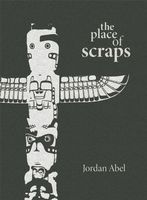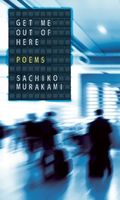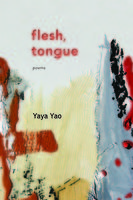Poetic Inspiration IV
By Kate Sutherland
This is the fourth in a series of posts highlighting inventive poems that have broadened my sense of what poems can be and do, and sparked me to stretch further in my own work. (The previous instalments can be found here: http://open-book.ca/Writer-in-Residence/Kate-Sutherland/Poetic-Inspiration-III.) Continuing where I left off:
10. Jordan Abel’s the place of scraps is a sequence of poems he’s carved out of anthropologist Marius Barbeau’s book Totem Poles using erasure techniques plus. Sometimes Abel multiplies bits of source text rather than subtracting, and sometimes he interjects his own. He also uses Barbeau’s photos of totem poles. Through these techniques, Abel brings to the surface the destructive effect of anthropology on Indigenous communities and cultures, while simultaneously recuperating Indigenous stories from its texts. The whole book is brilliant, but I find the pages in which Abel brings together photographs and fragmented text especially powerful.
11. I don’t want to highlight a single poem or a sequence of poems from Sachiko Murakami’s Get Me Out of Here, but rather the premise/process for the entire book. On the acknowledgements page, Murakami describes it as “an experiment in crowdsourced inspiration,” and the back cover copy offers some detail on the contours of that experiment: she put out an open call to people in transit at various airports around the world asking them to offer one sentence on their impressions of the people/places/events surrounding them, and she then used those sentences as prompts for poems. In the book, the origin of each poem is preserved, with the sentence from which it grew, the person who drafted the sentence, and the journey they were in the midst of when they did so, all noted at the beginning. I’m fascinated with this process by which Murakami shifted the usual solitariness of writing poems. She made not just the poems but the process of writing them a way of engaging with the world (literally, given the geographical reach of the collection) and with other people and their multiple perspectives. And the resulting collection is vast and rich.
12. Language and identity are central concerns in Yaya Yao’s debut collection of poems, flesh, tongue. Yao has spoken in interviews about growing up in Toronto with multiple languages: “Mandarin in my immediate family, Cantonese with family friends, Hokkien on my mom’s side of the family, Shanghainese on my dad’s side of the family, and English and French (I was in French immersion) at school.” She plays with translation of various of these languages in a series of lesson poems throughout the collection. And in the poems that I particularly want to highlight here, she works with text borrowed from a 1902 volume by James Dyer Ball with the expansive title How to Speak Cantonese: fifty conversations in Cantonese colloquial; with Chinese character, free and literal English translations, and romanised spelling with tonic and diacritical marks, &tc. I love these poems and I particularly love the effect of the accumulation of them throughout the collection: the shift between languages, the repetitions, and the way the words spread across and down the page. I was sufficiently intrigued to track down a copy of Ball’s book (happily, available online) in search of a bit of insight into how these poems were made, and I appreciated them even more once I had a sense of how Yao had transformed the source material.
There are so many great poems out there, I could go on forever, but since my term as writer in residence is nearly up, I'd better stop here at twelve.
Your CanLit News
Subscribe to Open Book’s newsletter to get local book events, literary content, writing tips, and more in your inbox
The views expressed in the Writer-in-Residence blogs are those held by the authors and do not necessarily reflect the views of Open Book.
Kate Sutherland was born in Scotland, grew up in Saskatchewan, and now lives in Toronto, where she is a professor at Osgoode Hall Law School. She is the author of two collections of short stories: Summer Reading (winner of a Saskatchewan Book Award for Best First Book) and All In Together Girls. How to Draw a Rhinoceros is Sutherland’s first collection of poems.
You can reach Kate throughout the month of October at writer@open-book.ca.





